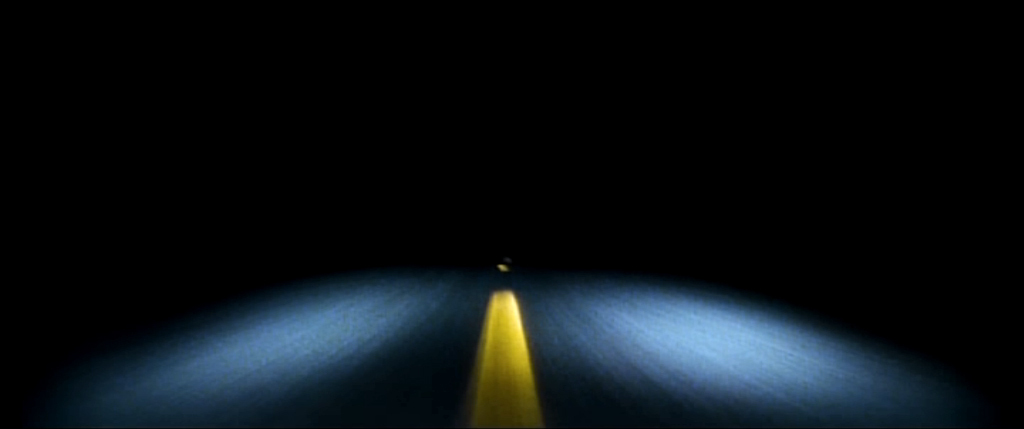#340 - Godzilla
Roland Emmerich, 1998

The city of New York is threatened by a giant lizard-like creature.
The 1998 Hollywood version of Godzilla has earned a very unfavourable reputation since its release for some very understandable reasons and those very reasons are very plain to see when you actually watch it. I'm not particularly familiar with any of the original movies, but you don't need to be in order to find this movie just ridiculous, and not in a way that's particularly fun. The human characters are pretty flat - Matthew Broderick plays the hapless protagonist that also doubles as the ignored expert who figures out what's going on, while Maria Pitillo is his ex-girlfriend and also an aspiring journalist (so you just know their stories will inevitably interlock), and Kevin Dunn plays the inevitable military figurehead who disregards the expert's advice in order to kill the monster by any means necessary. The always dependable Jean Reno does what he can as a French secret agent (why are the French involved? Who cares?) and ultimately ends up being the best character in the film as a result, though that's not hard. The movie even throws in a pair of joke characters involving the mayor and his aide, who are obviously modelled on Roger Ebert and Gene Siskel respectively.
But enough about the human characters, let's talk about the real reasons we're watching a Godzilla movie. Sadly, even if I'm going to disregard the fact that the CGI doesn't hold up, that doesn't stop any of the actual action from being hard to enjoy because of how implausible it is even within the context of such a destruction-happy film. Godzilla is the kind of creature that can't walk (slowly, mind you) down the street without smashing something yet I'm supposed to believe he can silently get the drop on a group of helicopters that have been chasing him? His abilities fluctuate as the plot demands and thus makes it difficult to take him seriously as a threat in any way and also helps to bloat the film out in all sorts of irritating and illogical ways (especially in the finale). Throw in some baby Godzillas that come across as off-brand velociraptors and some egregious filmmaking clichés (such as in-universe camera footage that is clearly just actual footage from the film or characters being unable to notice Godzilla despite both loud noises and seismic shockwaves) and you have a film that only barely redeems itself off the back of its unintentional comedic value because its intentional comedic value is just so horribly executed. Know what you're getting into here.
Roland Emmerich, 1998

The city of New York is threatened by a giant lizard-like creature.
The 1998 Hollywood version of Godzilla has earned a very unfavourable reputation since its release for some very understandable reasons and those very reasons are very plain to see when you actually watch it. I'm not particularly familiar with any of the original movies, but you don't need to be in order to find this movie just ridiculous, and not in a way that's particularly fun. The human characters are pretty flat - Matthew Broderick plays the hapless protagonist that also doubles as the ignored expert who figures out what's going on, while Maria Pitillo is his ex-girlfriend and also an aspiring journalist (so you just know their stories will inevitably interlock), and Kevin Dunn plays the inevitable military figurehead who disregards the expert's advice in order to kill the monster by any means necessary. The always dependable Jean Reno does what he can as a French secret agent (why are the French involved? Who cares?) and ultimately ends up being the best character in the film as a result, though that's not hard. The movie even throws in a pair of joke characters involving the mayor and his aide, who are obviously modelled on Roger Ebert and Gene Siskel respectively.
But enough about the human characters, let's talk about the real reasons we're watching a Godzilla movie. Sadly, even if I'm going to disregard the fact that the CGI doesn't hold up, that doesn't stop any of the actual action from being hard to enjoy because of how implausible it is even within the context of such a destruction-happy film. Godzilla is the kind of creature that can't walk (slowly, mind you) down the street without smashing something yet I'm supposed to believe he can silently get the drop on a group of helicopters that have been chasing him? His abilities fluctuate as the plot demands and thus makes it difficult to take him seriously as a threat in any way and also helps to bloat the film out in all sorts of irritating and illogical ways (especially in the finale). Throw in some baby Godzillas that come across as off-brand velociraptors and some egregious filmmaking clichés (such as in-universe camera footage that is clearly just actual footage from the film or characters being unable to notice Godzilla despite both loud noises and seismic shockwaves) and you have a film that only barely redeems itself off the back of its unintentional comedic value because its intentional comedic value is just so horribly executed. Know what you're getting into here.
__________________
Iro's Top 100 Movies v3.0
I really just want you all angry and confused the whole time.












